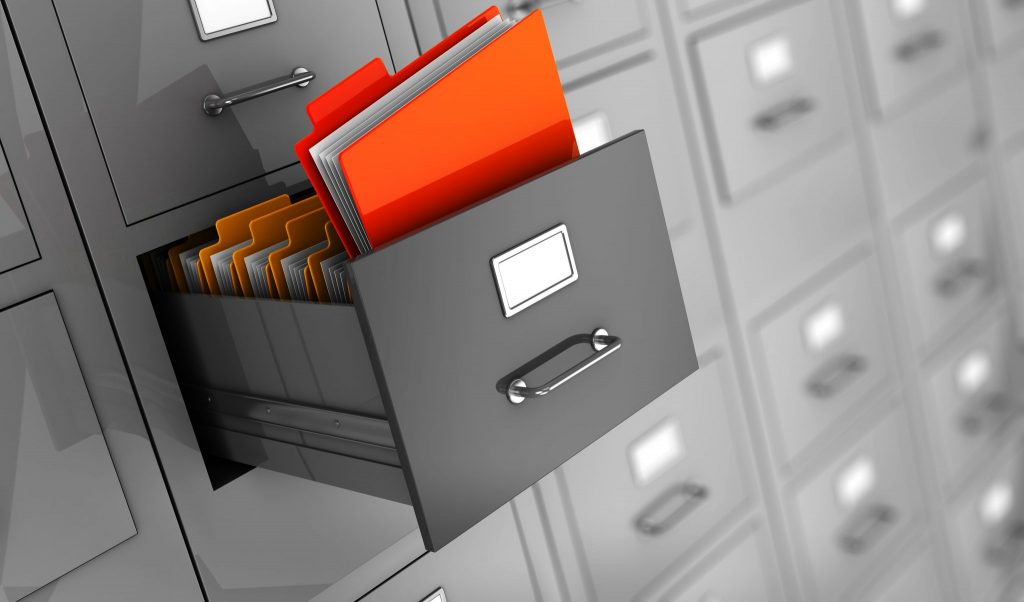Many small and midsized businesses leave email archiving as an afterthought instead of making it a priority. But this is not a good idea. There are many benefits an email archiving solution can provide for a business. To explore this subject, I recently sat down with Kristina Waldhecker the senior product marketing manager at MailStore.

MITCH: Thanks, Kristina for agreeing to let me interview you about the needs of today’s businesses for robust and secure solutions for email archiving.
KRISTINA: Hi Mitch. My pleasure — happy to be here and looking forward to the questions.
MITCH: From my own experience working with many small and midsized businesses and business owners, it often seems that email archiving is more of an afterthought than a well-thought-out business strategy. Why is that?
KRISTINA: Our experience is just the same. Companies are often completely unaware of the business benefits to be had from an email archiving solution. There are also lots of misconceptions as to what email archiving actually involves, such as: “we’re just a small company and don’t really need email archiving,” “the benefits of an archiving solution don’t justify the expense,” or “our emails are safely stored on the email server and we don’t need to archive them.” But these are fallacies. Not only companies in regulated sectors should protect their emails against data loss by using an email archiving solution. Given that one of our most widely read blog articles is “What is Email Archiving?” you can see that there is clearly a need for more information on the subject.
MITCH: Many businesses seem to believe that simply backing up their email system is enough. But that isn’t the case nowadays, is it?
KRISTINA: No, it isn’t. That’s another popular misconception. Backups on their own aren’t enough — just as an archiving solution wouldn’t be sufficient on its own either. The point is that these two solutions have two completely different purposes. A backup has a short-term focus and ensures the recovery of data in the event of failure — for example, due to file corruption or system failures. Backups don’t generally provide the end-user with self-service options: The data they contain aren’t indexed and therefore can’t be searched through. What’s more, it’s often difficult to satisfy compliance requirements with backups as they usually only represent a snapshot of the files at a given point in time, and it’s possible to delete emails before the backup starts. In contrast, email archiving has a long-term focus, its purpose being to preserve emails and make them available over a longer period of time. In most cases, archiving is an important basis on which to comply with legal, regulatory, and best-practice requirements. It also allows end-users to search through emails themselves, even when these are no longer located on the email server. In a nutshell: The main purpose of backups is to aid disaster recovery and business continuity, whereas the principal role of archiving is to support information management. Rather than competing with each other, these best practices actually complement one another.
MITCH: How email is implemented by businesses has changed a lot in recent years. With the advent of cloud email services like Microsoft Exchange Online with Office 365 and Google G Suite’s Gmail, most smaller businesses nowadays no longer deploy their own in-house email servers because of the cost and expertise required. Instead, they now prefer to purchase cloud email services on a subscription basis. Has this changed how companies handle their data?
KRISTINA: It certainly has — and not always for the better. Earlier, when IT departments had all their data “on-premises,” it was obvious that the data would be safeguarded by regular backups. But many companies believe that having moved to the cloud, they no longer need to secure their data with backups or archiving. Surely the cloud provider will make sure that my data doesn’t get lost, right …? Wrong! These days, some people even take a service like Dropbox to be a form of backup. But a cloud service will neither back up your data automatically nor will it archive your emails. Although cloud providers do guarantee the availability of their service, it is up to customers to protect their own data. Even the Microsoft Office 365 platform doesn’t archive emails automatically. Customers need to take action themselves — and Microsoft even refers to this point in its Customer Support Service Agreement. It reads: “You understand that data can be inadvertently lost, corrupted or breached, and agree that you are wholly responsible for the backup of any and all data.”
MITCH: Let’s focus for a moment on Office 365/Exchange Online since this platform has made extensive penetration into the business-grade email and collaboration market. Doesn’t Microsoft’s cloud-based email solution have its own built-in features for archiving email? Why is that not sufficient?

KRISTINA: Yes, in fact, Microsoft does offer four different native options under the heading “archive” and that, on its own, can be quite confusing for a company. Then, there’s the fact that of these options, only one can actually be regarded as an archiving solution in the professional sense, i.e. one that is capable of meeting legal, regulatory and best-practice obligations. It’s important that companies wishing to preserve their emails long-term as a key knowledge resource understand the various options so that they can make an informed decision. As many customers and partners have reached out to us to describe their confusion, we decided to ask the market research institute Osterman Research to prepare a white paper for us on this issue. The white paper provides a comprehensive insight into the various options available to Microsoft Office 365 customers in the area of email archiving. Both the built-in features of Microsoft Office 365 and third-party solutions are analyzed in terms of their benefits and limitations. The white paper can be downloaded by all interested parties from our website.
MITCH: What are some of the benefits that third-party email archiving solutions like MailStore’s can provide that go over and above what businesses can do using Office 365/Exchange Online alone?
KRISTINA: Third-party solutions like MailStore Server are often simpler to operate, more intuitive, and easier to maintain — and this can be a major advantage, especially for SMBs. As the solutions are less complex, IT administrators are usually able to get to grips with them faster. End-users to stand to benefit from, for example, fast, intuitive search access to the archive (with MailStore Server, this functionality is integrated directly in Outlook). Another advantage of third-party solutions is their independence from Microsoft. Don’t get me wrong: Microsoft Office 365 is a fantastic platform and we use it in our company too — applications such as Microsoft Teams (I’m a big fan) simplify our work greatly. Nevertheless, it can be an advantage not to have all your data, including the archives, stored away in a single system. So, third-party solutions can help you to avoid the vendor lock-in effect. Under certain circumstances, an external archiving solution can even make financial sense if it enables the customer to switch to a more affordable Microsoft Office 365 plan — you just have to do the math! Another issue that can be simplified with a third-party solution revolves around the fact that most cloud services like Microsoft Office 365 don’t allow internal mailboxes for journal emails, but require an external mailbox instead — hosted either by another provider or by an on-premises email server. That’s highly relevant here in our domestic market Germany as businesses rely on journaling for regulatory purposes. A third-party solution that is capable of receiving journal emails and archiving them straight away obviously makes the whole process much easier for the customer.
Third-party solutions like MailStore Server are often simpler to operate, more intuitive, and easier to maintain — and this can be a major advantage, especially for SMBs.
MITCH: What exactly does MailStore stand for? What makes MailStore special?

KRISTINA: MailStore specializes in email archiving solutions for small and medium-sized businesses. We have “SMB DNA” in our blood too, so we know what our customers want. That’s why we attach great importance to making our products simple and intuitive to operate, as well as reliable. As an IT administrator, I don’t want to have to grapple with my email archiving software every day of the week. Once installed, the software should get on and do its job — and our products do just that. Because we come from Germany, we’re very familiar with regulated markets and industry sectors: in Germany in principle, emails like all business correspondence have to be fully archived for many years in a form that is tamper-proof and permanently available. That’s why we are experts in email archiving — and not least of all because we’ve been producing email archiving software since 2006.
MITCH: To finish off our discussion, are there any last words you would like to address toward business owners and IT managers concerning email archiving?
KRISTINA: It is essential that business owners and IT managers are aware that email is still the most important knowledge resource and principal means of communication in many companies. It is, therefore, a source of information that is definitely worth protecting. Just consider all the information an email can contain: invoices, quotations, contracts, complaints, HR issues, travel bookings, etc., etc. Would your business be negatively impacted if these emails were to disappear or be difficult to locate? If so, it’s time for companies to take a good look at the subject of email archiving and examine the pros and cons of the different options available. As I’ve said before: backups are important, but they’re usually not sufficient on their own. For example, have you ever had to restore a single email from a backup volume? — or, during litigation, search for a specific email in a PST file saved locally on the PC of a member of field staff? Or have you ever experienced problems with mailbox quotas? All these things are rendered superfluous by a professional email archiving solution.
It is essential that business owners and IT managers are aware that email is still the most important knowledge resource and principal means of communication in many companies. It is, therefore, a source of information that is definitely worth protecting.
MITCH: Thanks, Kristina for taking the time to talk with us about this important topic.
KRISTINA: My pleasure, Mitch. Thank you for letting me take part in the interview.
Featured image: Shutterstock



